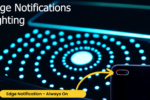Table of Contents
ToggleWhatsApp Alternative Apps: Top Choices for Android and iPhone Users
WhatsApp Alternative Apps, a widely used video calling and messaging app owned by Facebook, boasts a user-friendly interface and global popularity, with over 2 billion users in 180 countries. The app is praised for its reliability, privacy features, and simplicity, making it accessible even to those less tech-savvy. Users appreciate that WhatsApp is free to use, requiring only a stable internet connection and a smartphone.
In addition to mobile devices, WhatsApp can be accessed on laptops and PCs after a simple authentication process. With a 4.7 out of 5-star rating on the Google Play Store and 10.4 million ratings, the app continues to dominate the messaging landscape.
Since its founding in 2009, WhatsApp has grown into one of the most prevalent apps globally, surpassing even Facebook Messenger in user numbers. Facebook acquired WhatsApp for $19 billion in 2014, solidifying its position as a communication giant.
However, a new privacy policy introduced in January 2021 stirred controversy, requiring users to share personal details with Facebook. To continue using WhatsApp after February 8, 2021, users must agree to these terms, allowing Facebook access to data such as phone numbers, status messages, profile names, and IP addresses.
Despite its popularity, WhatsApp may not appeal to everyone due to its design or privacy concerns. For those seeking more personal or secure messaging alternatives, here are 12 of the best WhatsApp alternative apps to consider in 2023.
Characteristics of Safe Messaging Applications
Secure messaging apps prioritize protecting user communications while ensuring a seamless user experience through essential features and functionalities:
- End-to-End Encryption (E2EE): These apps employ E2EE, a private communication system that encrypts messages using public key cryptography.
- User Authentication: Ensures security through identity verification processes such as multifactor (MFA) and two-factor authentication (2FA), allowing access only to authorized users for private messages.
- Open Source: Ideally, a secure messaging app should have its code made public, enabling experts and users to review the platform’s security measures and identify any potential flaws.
- Rich Media: To replace regular unsecured messaging apps effectively, secure alternatives should offer rich messaging features, including text, images, videos, GIFs, and stickers.
- Self-Destruct and Expirations: A truly secure messaging service incorporates features that allow message destruction, preventing recipients from saving messages against the sender’s wishes.
- HIPAA-Compliant: While not essential for all users, healthcare organizations should consider HIPAA compliance when selecting a messaging app to meet specific security requirements.
The following list showcases secure messaging apps that leverage some or all of these features to enhance user privacy.
Cybersecurity Advice to ensure the Security of Messages
To enhance the security of your messages, even when using secure messaging services, consider adopting the following cybersecurity best practices:
- Avoid Public Wi-Fi: Public Wi-Fi networks are often unsecured, exposing your device and messages to potential hackers. If you must use public Wi-Fi, employ a VPN to safeguard your internet connection and maintain privacy.
- Verify Identities: Before sharing sensitive information, verify the identity of the recipient to ensure confidential data reaches the intended person.
- Implement Two-Factor Authentication (2FA): Enhance security by enabling 2FA, which adds an extra layer of protection against cybercriminals attempting to log into your messaging app.
- Exercise Caution with Links: Refrain from clicking on suspicious links, as they may be part of phishing schemes designed to download malware onto your device. Malware can compromise your personal information and security.
- Enable Self-Destructing Messages: Utilize features like self-destructing messages to automatically delete sent messages, preventing unauthorized users from accessing sensitive information.
- Report Suspicious Activity: If you suspect unauthorized access to your phone, device, or account, promptly report it to the relevant vendor or local law enforcement to address potential security breaches.
- Utilize Security Software: Employ robust security software, such as Norton 360 Deluxe, to detect and mitigate threats early. Features like a VPN can further secure your device and protect your communications from potential hackers.
By combining these best practices, you can significantly enhance the privacy and security of your messages.
Protect every conversation you have online
Ensure the security of all your online communications by actively repelling potential attackers instead of merely hiding from them. A robust approach to safeguarding your messages involves preventing unauthorized access to your device. Consider reinforcing your device’s security with Norton 360 Deluxe, a comprehensive solution offering multiple features and capabilities.
Norton 360 Deluxe provides layered protection, creating a formidable defense against hackers. It goes beyond conventional security measures by incorporating a built-in VPN. This VPN encrypts the information you send and receive online, irrespective of the messaging app you use. By utilizing Norton 360 Deluxe, you establish a proactive defense strategy to safeguard your online communications effectively.
Top 12 WhatsApp Alternative Apps in 2024

If you’re seeking a change or, more specifically, a reliable alternative to WhatsApp, you’ve come to the right destination! This article will explore the top 12 best alternatives to WhatsApp in the year 2024.
Presented below are some of the top secure messaging services available today, listed in no particular order. Let’s delve into key information about each of these services.
1. Signal
A snapshot displaying a conversation between users on the Signal app. Signal stands out as a complimentary messaging application that secures user communications through end-to-end encryption (E2EE) and the open-source Signal Protocol. This protocol outlines procedures governing the exchange of data between apps or computers. Signal empowers users to privately share voice chats and messages, providing a robust defense against hackers and advertisers. Notably, Signal maintains a commitment to user privacy, refusing to disclose private information even when faced with warrants from government agencies such as the Federal Bureau of Investigation (FBI).
Price: Free
Compatibility: Android and iOS
Signal boasts several standout features, including:
- End-to-End Encryption
- Screenshot Blocker
- Disappearing Messages
- Single-View Media
- Incognito Keyboard
- Rich Media
These features collectively contribute to Signal’s reputation as a secure and privacy-focused messaging platform.
| Pros | Cons |
| User-friendly interface | Requires a phone number for sign-up |
| Strong commitment to user privacy | Occasional intermittent message delivery issues |
| Robust encryption technology |
2. Session
A snapshot displaying conversations between users on the Session app. Session, an encrypted messaging application, serves as an alternative to Zoom for some businesses hosting private work meetings. This tool ensures the security of communications transmitted on both mobile devices and computers. Session goes the extra mile by utilizing onion routing, adding an additional layer of protection to user data. Moreover, Session guarantees a non-collection policy for metadata, safeguarding private information such as IP addresses.
Cost: Free
Compatibility: Android, APK, F-Droid, iOS, Linux, and Windows
Key features of the platform include:
- Group Chats
- Voice Messages
- Secure File Sharing
| Pros | Cons |
| No need for a phone number or email address during sign-up | Lack of group voice and video call functionality |
| Strict non-collection of geolocation or metadata | Users must independently verify the identity of their conversation partners on another platform |
| Collaboration features cater to work-related use cases | Resource-intensive, particularly on low-specification devices |
| Responsive User Interface (UI) |
3. Telegram
A screenshot displaying the desktop view of the secure messaging platform, Telegram. Telegram stands as an instant messaging app offering seamless synchronization of conversation data across various devices. Users can engage in group chats and create digital communities. It’s crucial to note that while Telegram provides end-to-end encryption (E2EE) for “secret chats,” sensitive content should be avoided in public channels. Notably, the platform ensures government inability to review messages, with access limited to a user’s IP address and phone number, obtainable only with a legal warrant.
Price: Free
Availability: Android, iOS, Linux, macOS, and Windows
Telegram boasts a range of features, including:
- Live Streaming
- File Sharing
- Video Calls
- Voice Chats
- Secret Chats
- Rich Media
These features contribute to Telegram’s versatility as a messaging platform.
| Pros | Cons |
| Facilitates the creation of group chats accommodating up to 200,000 people | Vulnerable to the passage of spam messages to users |
| Empowers users to establish channels for streaming to audiences of any size | Presence of several unmonitored channels |
| Offers a generous storage capacity |
4. Wire
A screenshot showcasing the interface of the Wire secure messaging platform on both mobile and desktop. Wire, a secure messaging app trusted by businesses and governments worldwide, utilizes its encryption protocol, Proteus, based on Signal’s framework. Beyond encrypting messages, Wire extends its security to cover videos, audio communications, and file transfers.
Price: Contact sales for details
Availability: Android, iOS, Mac, and PC
Key features of Wire include:
- End-to-End Encryption
- Self-Deleting Messages
- Authentication Settings
- Team Management
- Service Level Agreements (SLAs)
These features make Wire a comprehensive and secure communication solution.

